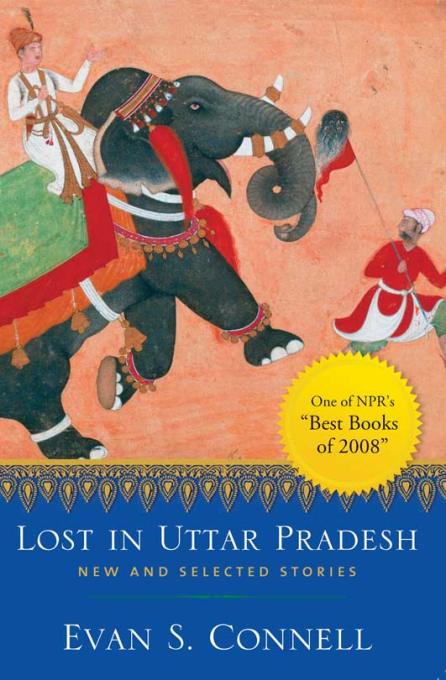
Lost in Uttar Pradesh
New and Selected Stories
- اطلاعات
- نقد و بررسی
- دیدگاه کاربران
نقد و بررسی

May 19, 2008
Virtually all of these 22 stories from octogenarian Connell (Mrs. Bridge
) are set in the U.S.—“an insensate, vulgar, flatulent, bloodless...nation of merchant, thugs, Protestants, and barbers”—where trapped characters fantasize of faraway lands. Its women—profiteering grifters and whores (“St. Augustine's Pigeon,” “Hooker”), reactionary viragoes (“Mrs. Proctor Bemish”), an evil secretary and a despotic nanny, to name a few—are set up as straw ladies to be torched by reams of male resentment. The misogyny of Mulbach, an embittered insurance salesman who occupies some 90 pages across three stories, as well as the more subdued, exotically inclined sexism of the book's other recurrent voices (Uncle Gates and Koerner), are frequently unpalatable. But they aren't the measure of Connell's vision, which includes inspired depictions among the bile (in particular of Mulbach's young son, Otto, and of a horrifying WWII scene in Guadalcanal). But Connell is also no Céline, whose effulgent prose could transcend his venomous obsessions, and the book ends up trapped in its characters' own unpleasantness.

Starred review from July 1, 2008
Connell is best known for his classic novels Mrs. Bridge (1958) and Mr. Bridge (1969) and for his best-selling account of General Custers battle at Little Big Horn, Son of the Morning Star (1984). Aficionados of the short story, however, have long knownConnellto be a master of the form, and this is his first collection of new and previously published stories in more than 10 years. With a singular style marked by concision, vivid detail, and oblique narration, Connell is noteasy to readyetremains consistently mesmerizing.In the 22 stories collected here, he providesan update, in Mrs. Proctor Bemish, on the pitch-perfect portrait ofthe repressed midwestern psycheimmortalizedin the Bridge novels; continues to tease out thedifferences between inveterate travelers andworkaday citizens; and creates, out of mundane events such as a disastrous dinner party or awedding anniversary celebration, starkmoments of alienation and disaffection. Amid the bleakness, however, he also summons fleeting joy and wry comedy. In particular, the three lengthy stories featuring Muhlbach, whose wife is dying, contain luminous depictions of Muhlbachs childrenhis doll-like daughter, Donna, and his masterfully manipulative son, Otto, who agitates in hilarious fashion topostpone his bedtime. By turns haunting andmysterious, Connells work continues to intrigue.(Reprinted with permission of Booklist, copyright 2008, American Library Association.)




دیدگاه کاربران